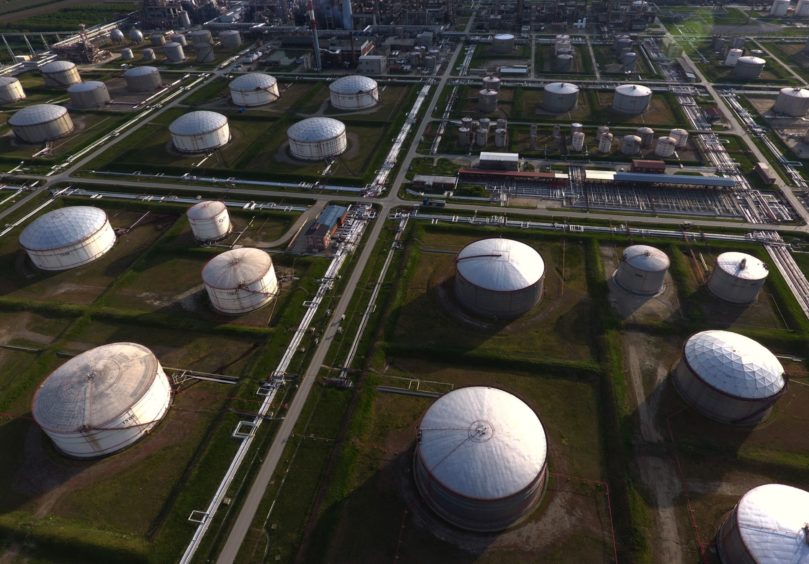
Brent oil hit $75 a barrel for the first time in more than two years amid signs of a rapidly tightening market.
Futures in London edged above that mark in early Asian trading after rising 1.9% in the previous session, the most in four weeks. The market continues to firm in a bullish structure, with one time spread for West Texas Intermediate (WTI) expanding to the widest backwardation in seven years. Genscape Inc. reported stockpiles at the key American storage hub of Cushing fell again last week from the lowest level since March 2020, according to people familiar.
Brent oil has rallied more than 40% this year as a strong rebound from the pandemic in the US, China and Europe underpins increasing fuel consumption, although a virus comeback in parts of Asia is a reminder that the recovery will be uneven. The global crude benchmark may even advance to $100 a barrel next year as travel demand rebounds, according to Bank of America Corp.
“Demand optimism is now well established and a tightening of the market is very much in the spotlight,” said Vandana Hari, the founder of Vanda Insights. “If there is a pause in this rally, it will likely come from the supply side.”
One bit of bearish news amid all the optimism is China’s crackdown on the nation’s private refiners. A second batch of 2021 crude import quotas allocated to the independents was about 35% less than last year, which will crimp flows into a sector that accounts for around a quarter of Chinese processing capacity.
Prices
* Brent for August settlement rose as much as 0.3% to $75.15 on the ICE Futures Europe exchange, the highest intraday level since April 2019, before easing to $75.09 at 9:50 a.m. in Singapore.
* The prompt time spread for Brent was 86 cents in backwardation, compared with 57 cents at the start of last week.
* WTI for July delivery, which expires Tuesday, gained 0.1% to $73.75 a barrel on the New York Mercantile Exchange.
* The more-active August contract added 0.1% to $73.20.
The premium traders are placing on WTI for September delivery over October contracts touched $1.12 a barrel on Monday. Before this, the gap between the third- and fourth-closest contracts had only traded above $1 over two periods in the past 13 years — in 2008 and from mid-2013 to mid-2014.
US crude stockpiles, meanwhile, dropped by 3.5 million barrels last week, according to the median estimate in a Bloomberg survey. If confirmed by government data on Wednesday, it would be a fifth weekly decline.
The increasingly bullish outlook for oil is adding pressure on the OPEC+ alliance led by Saudi Arabia and Russia, which meets next week to consider reviving more of the production it curbed during the pandemic.
Recommended for you
